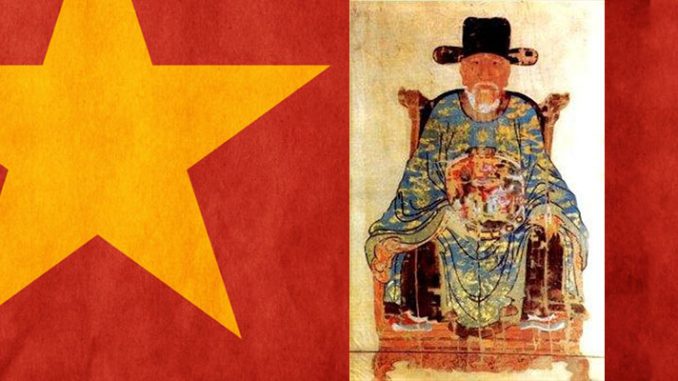
Confucianism in Vietnam
Hồ Chí Minh City / Vietnam National University and Hồ Chí Minh City Publishing House / 2002
The articles in the first category offer a number of interesting “micro” perspectives. Nguyễn Tự Cường and Vĩnh Sính present interesting studies of Phan Bội Châu and Phan Chu Trinh respectively and these two men’s approaches to Confucianism in the early decades of colonial rule. John Whitmore looks at Confucianism under Emperor Lê Thánh Tông in the late 1400s and Nguyễn Nam at the Mạc in the sixteenth century, while Nguyễn Quốc Vinh writes about the turbulent late 1700s. Benjamin Ng Wai-Ming and Lee Cheuk Yin both focus on the colonial-era scholar Lê Văn Ngữ and his interpretations of classical Chinese texts.
Two chapters draw on fieldwork to look at the issue of Confucian values in the contemporary Mekong Delta: Trương Văn Chung’s “A Preliminary Survey of Confucianism in the Present Mekong Delta Community” and Setsuko Owada-Shibuya’s “Supporting Parents in Uncertainty: Filial Piety in the Rural Mekong Delta.” These are interesting beginnings which only scratch the surface of a very important issue: how Confucian is a region known for its ethnic and cultural heterogeneity? Cao Tự Thanh’s piece on “Confucianism and the History of Southern Vietnam” also provides some historical perspective on this issue.
The remainder of the chapters deal mainly with Vietnamese Confucianism at the philosophical level, but many of the arguments can be linked to two fundamental questions. First, to what extent can we legitimately speak of Vietnamese Confucianism as something distinctively Vietnamese? There is a frequent tendency to argue that we cannot and that most pre-colonial scholars largely absorbed Chinese thought without elaborating or developing it. Second, and more crucially, how does one assess the Confucian legacy in Vietnam? What are its positive and negative aspects, and what does it offer to present-day Vietnamese society at a time of industrialization, modernization, and globalization?
The second question in particular is one over which considerable ink has been spilled in Vietnam over the last ten or fifteen years. The lead chapter by Prof. Phan Văn Các nicely frames the issue as an introduction to the other writers who follow. “Today,” he notes, “scholars cannot ignore the fact that Confucianism has been seriously examined for its global relevance and meaning. Can Confucianism play some role in the making of future human culture? … As a matter of fact, the study of Confucianism in the context of modernity is to examine its relevance to our national modernization project” (15). Các himself is generally optimistic about the potential of Confucianism in this regard, to the point of advocating the establishment of an “Institute of Confucian Studies” in Vietnam which would presumably look to the present and future as much as to the past.
Các’s optimism is shared by a number of his colleagues. Trịnh Doãn Chính, for example, emphasizes the value to Vietnamese education of the Confucian concept of “cultivating self” (tu thân 修身), while Phan Ðại Doãn notes the positive benefits of tolerance in accordance with “Universal Harmony” (đại đồng 大同) and Nguyễn Trọng Chuẩn stresses the need for Party and government to hold onto the principle of “people as the root of the nation” (dân vi [bang] bản 民為邦本). Mai Quốc Liên calls for “urgent actions… before it is too late to restore and draw on the strength of these values” (125).
Other scholars are less convinced. Nguyễn Quang Ðiển’s conclusion to his “Some Methodological Issues in the Study of Vietnamese Confucianism” is that though Confucianism’s positive values are “obvious,” its negative aspects are equally “glaring.” Confucianism is not, he argues, “playing the role of a motive force that promotes social progress” in China or elsewhere (69). Scholars like Vũ Khiêu and Ngô Văn Lệ are rather ambivalent, arguing for somewhat restricted application of Confucian principles with careful pruning to eliminate negative elements.
Nor is there a clear consensus on the distinctiveness of Vietnam’s Confucian tradition. Trần Văn Ðoàn has written extensively on what he calls Việt Nho (越儒), “Vietnamese Confucianism” and clearly believes that it should be understood and studied as a separate entity, a perspective shared by Phan Ðại Doãn. By contrast, intellectual historian Trần Văn Giàu argues that despite certain identifiable distinctions, “Vietnamese Confucianism still remained a form of generic Confucianism” (102), while Dương Ngọc Dũng concludes that “the identity of Vietnamese Confucianism might be its similarity to, not difference from,” its Chinese counterpart (65).
This book is useful for bringing together the views of scholars working within and outside Vietnam on a topic of renewed relevance. The translations of papers originally written in Vietnamese are generally competent and readable. (One small exception is that “Nam Bo,” referring to the area known as Cochinchina under French rule, is rendered “South Vietnam, which is not the same thing.) Readers may find the book valuable less for what it teaches us about Vietnamese Confucianism per se than for what it reveals of the ambivalence felt by many of Vietnam’s scholars about its intellectual and cultural legacy. As Vietnam experiences comprehensive changes in the context of reform and globalization, the questions raised in these articles become far more than sterile academic debates. As Marxism continues to lose its grip over Vietnamese society and culture and the country is exposed to Westernization in increasingly large doses, Confucianism may well re-assert itself as an important and positive force.
Bruce Lockhart
The author teaches in the Department of History at the National University of Singapore and is Editor of the Journal of Southeast Asian Studies.
Kyoto Review of Southeast Asia. Issue 3: Nations and Other Stories. March 2003

